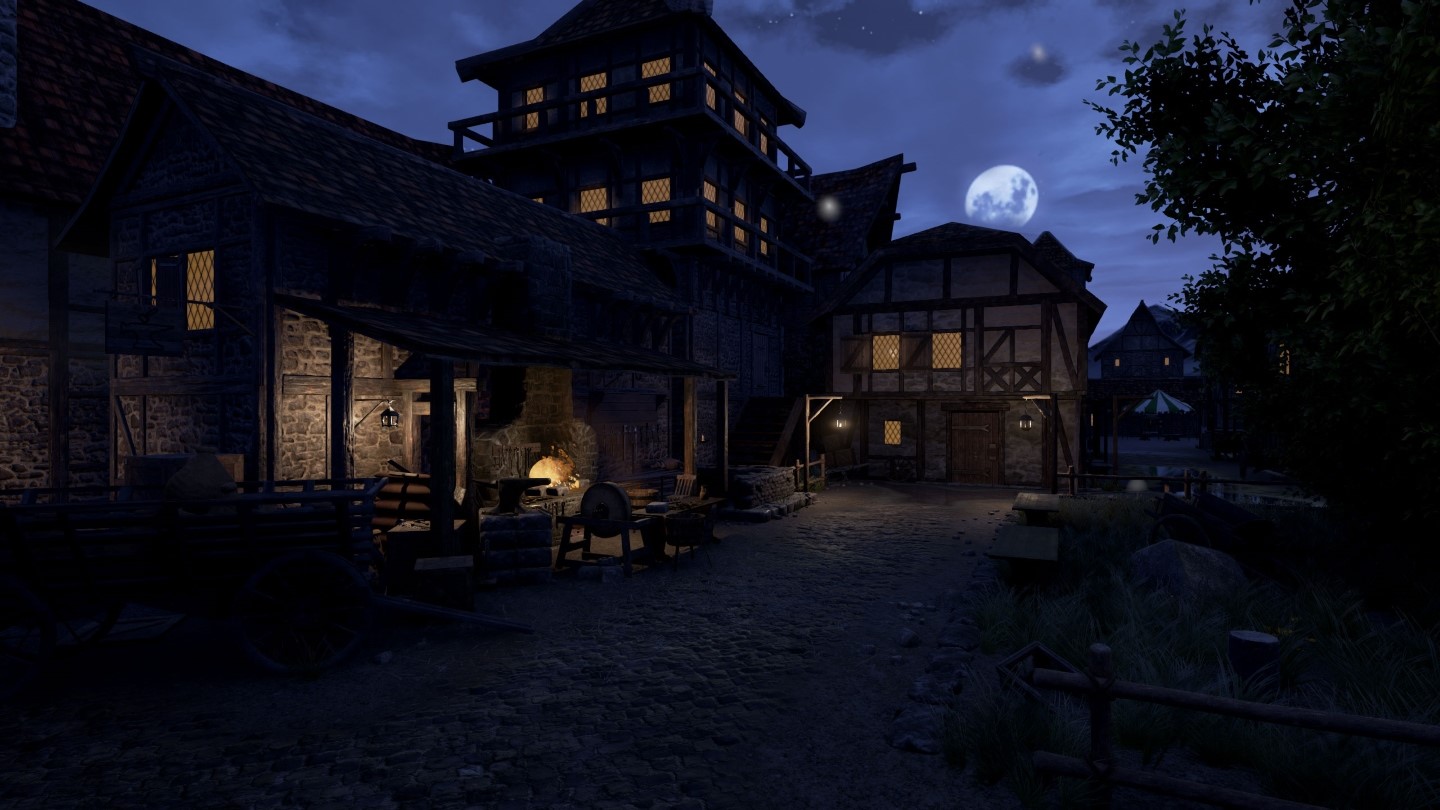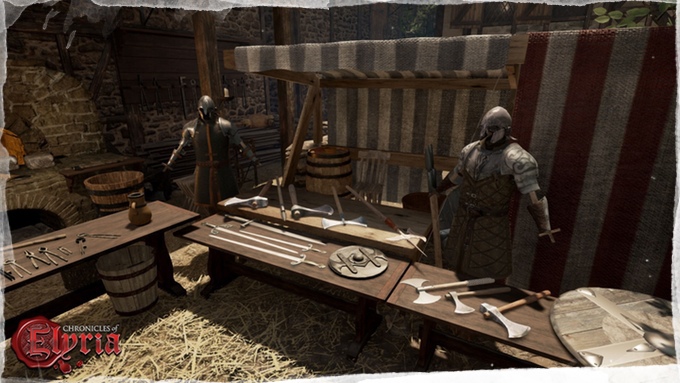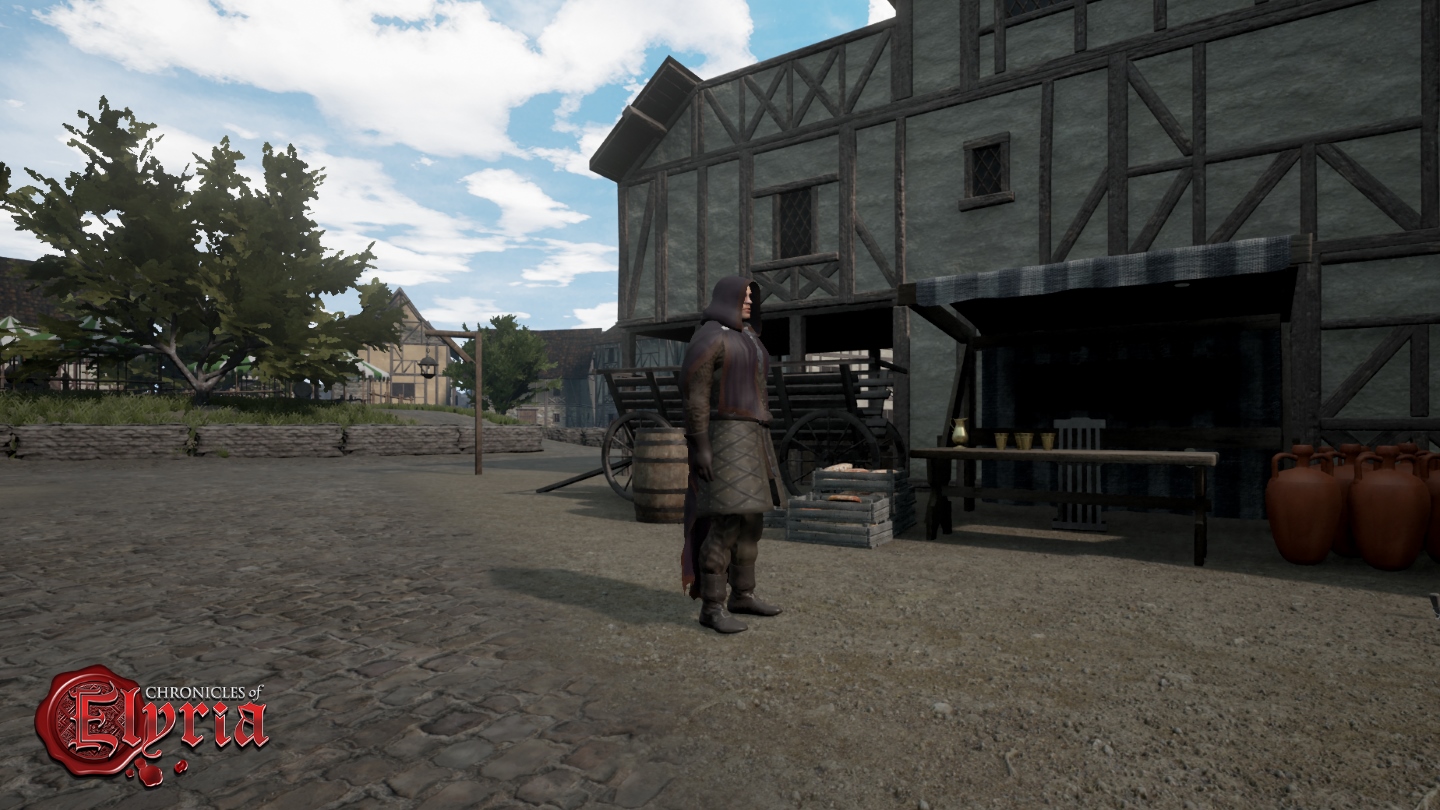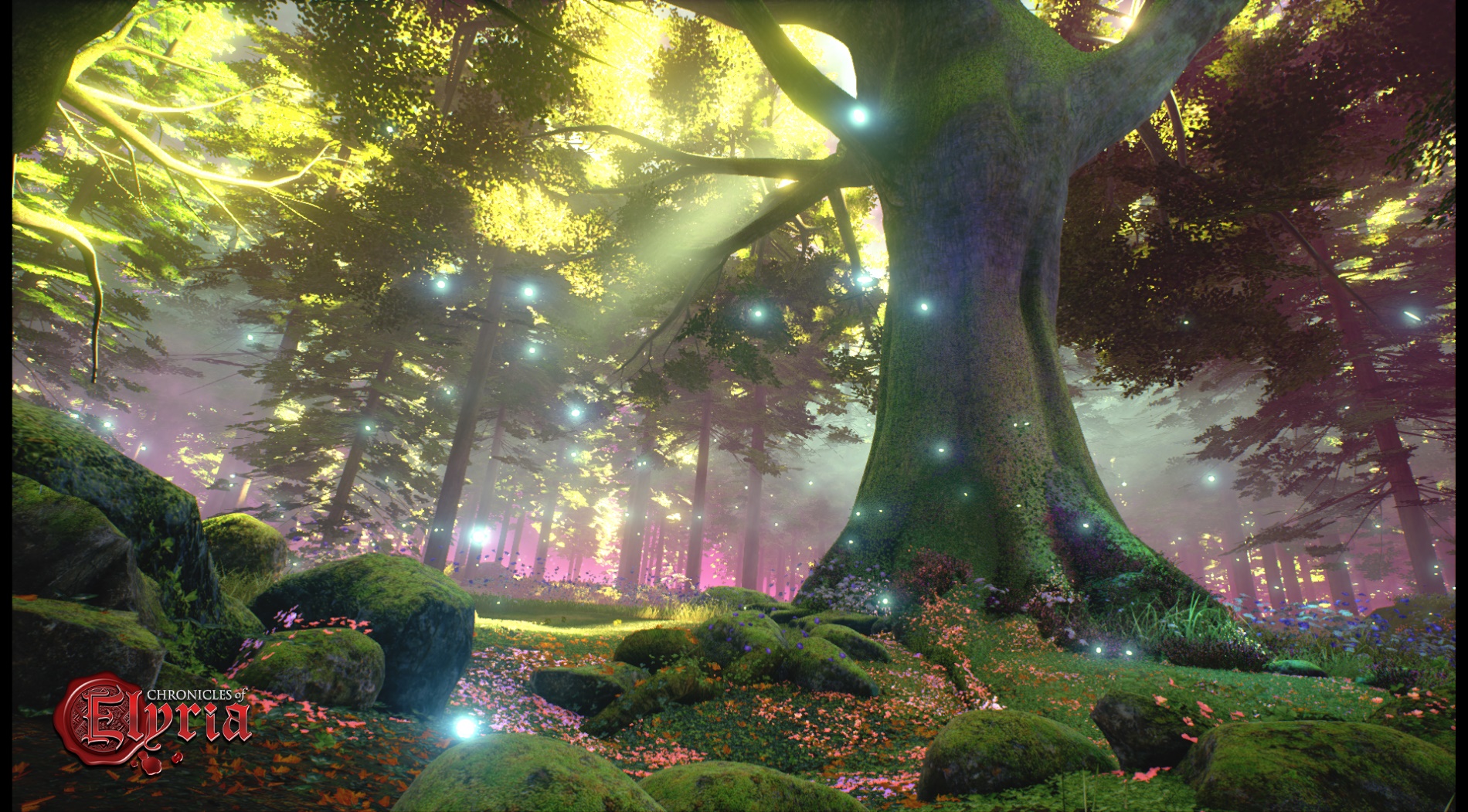This is Cliqist’s fifth post on Chronicles of Elyria, and if you’ve gotten around to reading our previous articles on the massively hyped MMORPG, you’re probably still trying to wrap your head around the ambitiousness and scale of Soulbound Studio’s upcoming project. We know now for sure that the game is coming; it was successfully funded on Kickstarter a few days ago with $100,000, and is shooting for its newly released stretch goals as I write. These are unique and innovative stretch goals in every sense of the word; the “phoenix pet” at $1,800,000 and the final stretch goal, implementation of “mounted combat” at $2,250,000, are only two of the many that have caught my eye.
The campaign has over two weeks left to go, and it might even be able to meet the same amount of funding as Divinity: Original Sin 2, an MMORPG by Larian Studios that ended up with $2,032,434—over 4 times the amount it was asking for.
Soulbound Studios definitely enjoys comparing its game to other MMORPGs, often while employing the word “unlike”—and with good reason. In my previous posts, I’ve touched upon features that have never been implemented in Chronicles of Elyria’s counterparts: multiple lifetimes that vary in length depending on your actions and identity theft, to name just two of very many. I’ve been bouncing around from topic to topic randomly in my substantial coverage of the game, and not from lack of direction, but just to try and present a bird eye’s view of the enormous project at hand. Even then, it’ll be up to you to delve into the site and dig up design journals to really get a grasp on the intricate details and concepts that Soulbound Studios have been brewing up for years on end. Keeping in line with the non-sequential topics of Cliqist’s recent coverage on Chronicles of Elyria, in this article, I’ll be going over crafting—again, how it differs from other MMOs. Every die hard MMORPG fan has spent days upon days grinding for resources to level up their smithing skill and forge a badass outfit. But Chronicles of Elyria aims to eliminate all of that redundant legwork and take things in a more fun and rewarding direction.
Keeping in line with the non-sequential topics of Cliqist’s recent coverage on Chronicles of Elyria, in this article, I’ll be going over crafting—again, how it differs from other MMOs. Every die hard MMORPG fan has spent days upon days grinding for resources to level up their smithing skill and forge a badass outfit. But Chronicles of Elyria aims to eliminate all of that redundant legwork and take things in a more fun and rewarding direction.
In one of their earlier design journals, available on the Chronicles of Elyria website, Soulbound Studios speaks to the sheer difficulty of getting started with crafting in the MMORPGs of our day and age. With a skill such as, let’s say, magic, all it takes to cast a spell is to talk to someone who can give you a book to learn the spell, or teach the spell to you themselves. With crafting however, you usually have to trek out into the wilderness, harvest twenty glowing mushrooms and whatever else, and only then can you get started on your journey to become a master blacksmith. Or maybe you have to raise a sufficient amount of funds to “buy” your way into the business, as Soulbound Studios have suggested. “Head out into the fields to kill a few bunnies, gain some coin, and then come back and sell off the vendor trash before you have enough money to do what you want to do.”  Thankfully, with Chronicles of Elyria, it’s much easier to start crafting with the implementation of apprenticeships and loans. They’re both self-explanatory; in most villages and towns there will be a mentor willing to take on a mentee. They’ll cover the costs, and in return supply you with invaluable advice earned through tasks that will of course reward them in their favour. As you advance in skill, from Apprentice to Journeyman to Expert, you’ll be able to take out a loan from certain NPC agents to start up a small business, handing over all of your belongings as collateral.
Thankfully, with Chronicles of Elyria, it’s much easier to start crafting with the implementation of apprenticeships and loans. They’re both self-explanatory; in most villages and towns there will be a mentor willing to take on a mentee. They’ll cover the costs, and in return supply you with invaluable advice earned through tasks that will of course reward them in their favour. As you advance in skill, from Apprentice to Journeyman to Expert, you’ll be able to take out a loan from certain NPC agents to start up a small business, handing over all of your belongings as collateral.
Not much information has been given yet on running your own business, but again, it’s just another unique concept that reinforces the realism that Soulbound Studios is striving for.
All of the above requires a certain amount of player skill. In combat, this means no more button mashing/key spamming, but rather a required understanding and execution of how to parry, dodge, strike, etc. Soulbound Studios intends to carry this approach over to their non-combat skills—crafting in particular. They’re striving to create a system that goes “beyond simple progress bars and instead [engages] the player in the activity they [are] performing.” This manifests itself in the form of “skill challenges” which require you to be able to perform certain tasks up to a given standard in order to progress. See, you’ll never be able to escape the grasp of tests and examinations even after so many years of cold, hard academia!
 But these tests aim to be much more fun and much less tedious than the ones you’re probably used to. For example, in a Blacksmithing Skill Challenge detailed in a design journal, players have to “cut out the shape of the axe blade they are trying to create.” As the object design increases in complexity, so does the task at hand, obviously. There’s a catch though; the time you’re given to cut out the shape decreases accordingly. There’s also a correspondence between the discrepancy of the player’s skill to the skill required to cut the item, and the margin of error.
But these tests aim to be much more fun and much less tedious than the ones you’re probably used to. For example, in a Blacksmithing Skill Challenge detailed in a design journal, players have to “cut out the shape of the axe blade they are trying to create.” As the object design increases in complexity, so does the task at hand, obviously. There’s a catch though; the time you’re given to cut out the shape decreases accordingly. There’s also a correspondence between the discrepancy of the player’s skill to the skill required to cut the item, and the margin of error.
Multiple other challenges are currently in the works, from “a musical, Guitar-Hero style challenge for musical skills, ‘find the item’ type challenges for Tracking and other related skills, whack-a-mole type challenges for other smithy related tasks, and even ‘operation’ style problems for first-aid!” If this isn’t the furthest thing from MMORPG convention, I don’t know what is. Another thing to note is that you can pick and choose which items you want to specialize in crafting. You may want to become a master swordsmith without putting together hundreds of other metal weapons first, such as axes or ingots—I’m thinking specifically of Skyrim, where you repeatedly craft silver ingots to progress up the smithing skill tree. That’s exactly what Soulbound Studios isn’t going after (and although I loved Skyrim, I didn’t exactly enjoy the grinding, even if it was relatively minimal).
Another thing to note is that you can pick and choose which items you want to specialize in crafting. You may want to become a master swordsmith without putting together hundreds of other metal weapons first, such as axes or ingots—I’m thinking specifically of Skyrim, where you repeatedly craft silver ingots to progress up the smithing skill tree. That’s exactly what Soulbound Studios isn’t going after (and although I loved Skyrim, I didn’t exactly enjoy the grinding, even if it was relatively minimal).
Now onto the actual crafting of handsome new blades. As with most other games, you still have to gather the resources for a crafting recipe in order to forge the sword of your choice. But in Chronicles of Elyria, it’s a little more difficult than just putting together two steel ingots and some leather strips. You’ll actually have to craft or at least invest in a quality blade and a hilt. The hilt is made up by a handle, a cross-guard and a pommel. The handle is made up by a wooden handle and “some kind of binding.” All these components require resources: everything from stones to sand to clay and even organic materials such as tree bark and fruits. Wait, fruits?
Obviously, the quality of your components affects the quality of the overall build, and can be upgraded in the future, should you decide to take out a particular part and replace it with something better. Eventually though, just like in the Witcher 3, you’ll be forced to replace certain components as they do wear out over time. Am I the only one right now thinking custom-built PC?
Stay tuned for further coverage of Chronicles of Elyria. There’s just so much more to talk about!
You can track the game’s progress in our campaign calendar.




Divine Divinity original 2 is an MMORPG…did i miss something on their presentation?!
It’s an single player game with also a multiplayer system and a coop one but the emphasis is put on the single campaign and coop..writing it’s an MMORPG is misleading.
This game though is a MMORPG, since it seems there is no emphasis on another kind of system.
Oops my bad! It is indeed a single player game with multiplayer and coop as well. I should know; I’ve played Divinity OS 2!